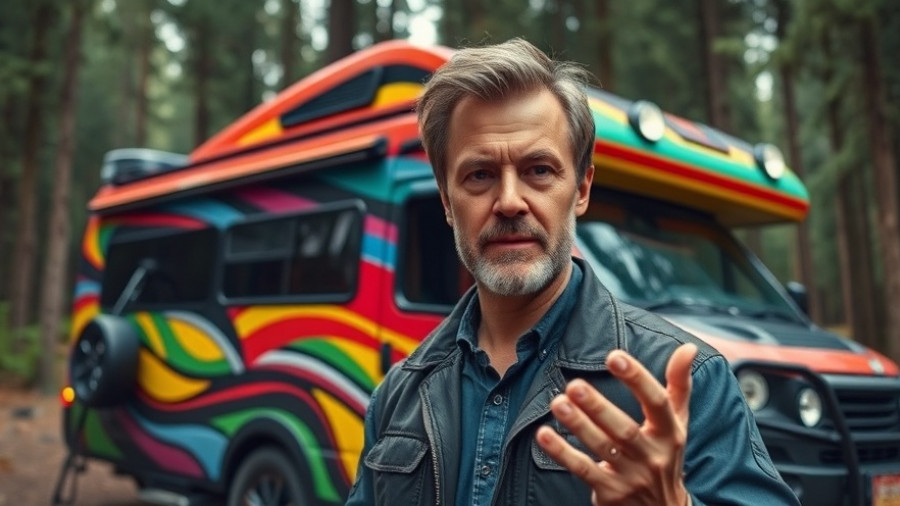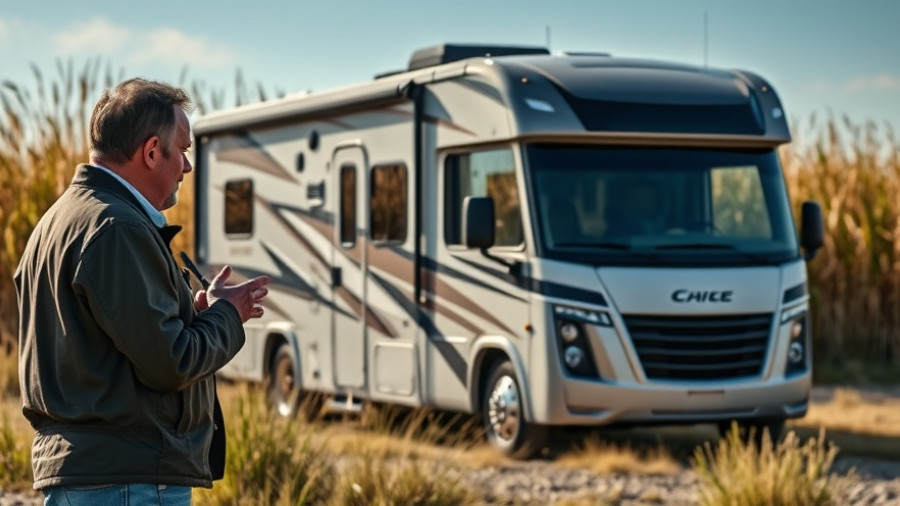
The Shifting Landscape of the Electric Vehicle Industry
As electric vehicles (EVs) continue to define the future of transportation, recent headlines depict a troubling narrative for major players in the industry. General Motors' decision to halt production of the BrightDrop electric van exemplifies a growing concern: Are the expectations for commercial electric vehicles too high amid fluctuating demand and shifting market conditions?
GM's Bold Move: Discontinuing the BrightDrop Van
Following a disappointing sales performance, GM’s cancellation of the BrightDrop van highlights the critical impact of market demand on production strategies. Chevrolet sold only 274 BrightDrop vans in Q1 of 2025, a figure that led to a significant reassessment of their electric vehicle strategy. GM's move not only affects its Ingersoll, Ontario plant but also signals a broader trend in which automakers are pivoting back to gas-powered vehicles.
Economic Factors Fueling the Change
Makin the decision even more poignant is the economic climate marked by changing tax incentives and tariffs that have burdened EV production in North America. Analysts predict that the cancellation of the BrightDrop will create ripples through not only GM and the CAMI Assembly plant but the wider Canadian auto industry which is struggling to adapt to the pressures resulting from U.S. trade policies.
Ford's F-150 Lightning Production on Hold: A Ripple Effect?
Simultaneously, Ford recently placed a hold on its iconic F-150 Lightning production due to operational setbacks and supply chain issues. This uncertainty presents yet another challenge for consumers and businesses as the EV landscape evolves, raising questions about the long-term viability of production plans for EV models in light of current market conditions.
The Future of Electric Vehicles: Market Sentiments
Consumer demand for EVs, especially in commercial goods movement, remains tepid. Despite promising products such as Ford's competing E-Transit, which sold over 4,600 units, the market for commercial electric vans has developed more slowly than anticipated. Experts suggest potential buyers, particularly within fleet operations, may be hesitant to invest in new technologies until clearer benefits and reliability are established.
A Look Ahead: What Does This Mean for Travelers?
For the audience of adventurers and RV enthusiasts, the current shakeup within the electric van sector could directly impact future RV designs and offerings. As manufacturers adapt and shift back towards internal combustion engines, potential buyers might need to rethink their own vehicle choices for road trips and adventures.
Whether prioritizing sustainability or adventure, being informed about market developments allows travelers to make sound decisions about their options moving forward. Embracing flexibility and openness to innovation in the RV market is key to future exploration.
Emphasis on Sustainable Living and Travel
Despite the uncertainty and struggles in the electric vehicle market, the commitment to sustainability is still strong among consumers and manufacturers alike. Automotive brands will need to navigate the balance of profitability and innovation, paving the way for a future where eco-friendly travel becomes a reality.
As we assess the impact of these shifts in the automotive landscape, readers are encouraged to stay vigilant about changes that may affect their travel experiences. Understanding vehicle options and their implications not only enhances consumer choices but aligns with an adventurous, sustainable lifestyle.
 Add Row
Add Row  Add
Add 




Write A Comment